Centre for Bee Ecology, Evolution and Conservation (BEEc) Associates are a network of interdisciplinary researchers and community members with the purpose of pushing the limits in bee research, education, public outreach, and policy. Ultimately, our goal is to apply our collaborative efforts to the development of policies and environmental management for the long-term sustainability of bees and the vital ecosystem services they provide.
There are numerous ways in which researchers, students and community members can be part of the work that we do. BEEc Associates have access to numerous benefits, including:
- Knowledge mobilization - we can help with the dissemination of your work with an established network of researchers, students, and organizations, across a variety of platforms including our monthly newsletters, our annual BeeCon conference, the BEEc website, various social media platforms, and more!
- Grant application support - such as editing, budget preparation, and other general administrative activities
- Project management - such as fulfilling reporting requirements, paying students and staff, etc
- Access to the BEEc network - including bee researchers and non-profit organizations across the globe, building opportunities for collaborative partnerships, diverse research methods, and higher-tier grants.
Read more about our current members below!
Want to stay to date on all BEEc activities? Sign up for our Global Listserv where you will recieve monthly newsletters and occasional invitation to talks/events of interest. Sign up by sending an email to LISTSERV@YORKU.CA with the following command in the body of the email: SUBSCRIBE BEES YourFirstName YourLastName.
BEEc's Faculty Associates are part-time, full-time, or emeritus faculty members engaged in research at York University, or at an external university. Their participation in events such as BEEc Meetings, relevant grant-related activities, and contributions to research are invaluable additions that drive our success.
Jennifer Bonnell
Associate Professor, History, York University
As an environmental historian, I aim to provide historical context to contemporary environmental crises and concerns. My current research explores the role of nineteenth- and early-twentieth century beekeepers in the Great Lakes Region in advocating for protection from a range of threats associated with agricultural modernization, including arsenical insecticides and loss of bee forage. Nineteenth-century beekeepers in Ontario and neighbouring states were among the earliest collective voices to speak out against the dangers of indiscriminate insecticide use. The arguments they used, and the strategies they employed, provide important context for pollinator protection efforts today.
Website: https://jenniferbonnell.com/
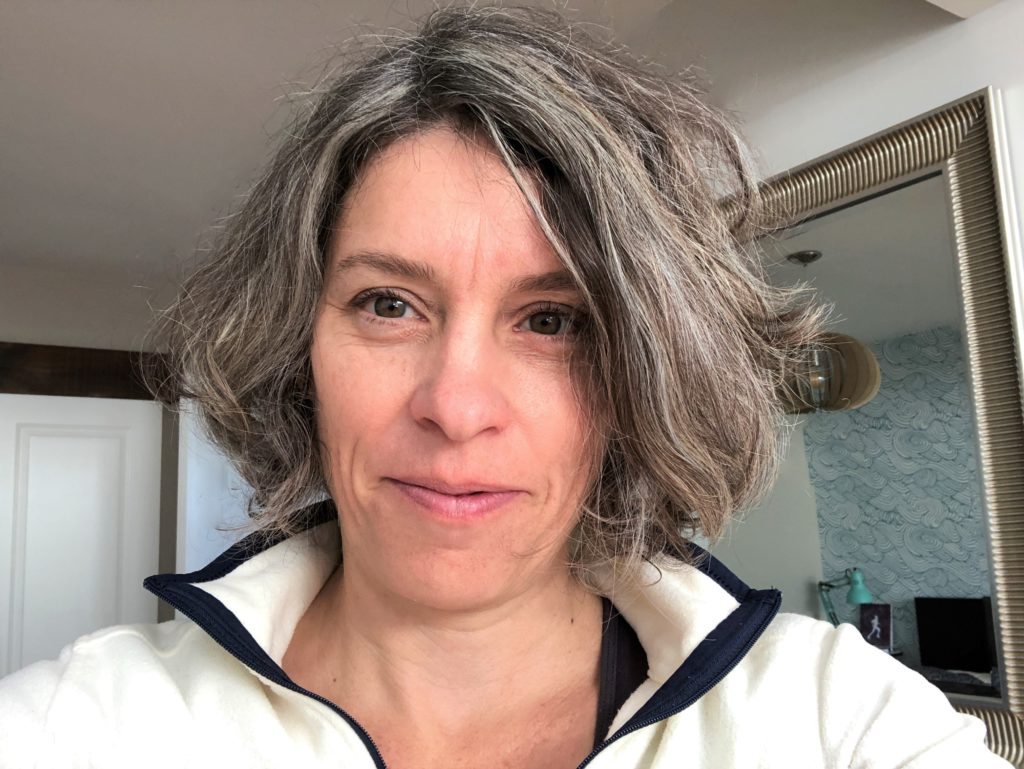
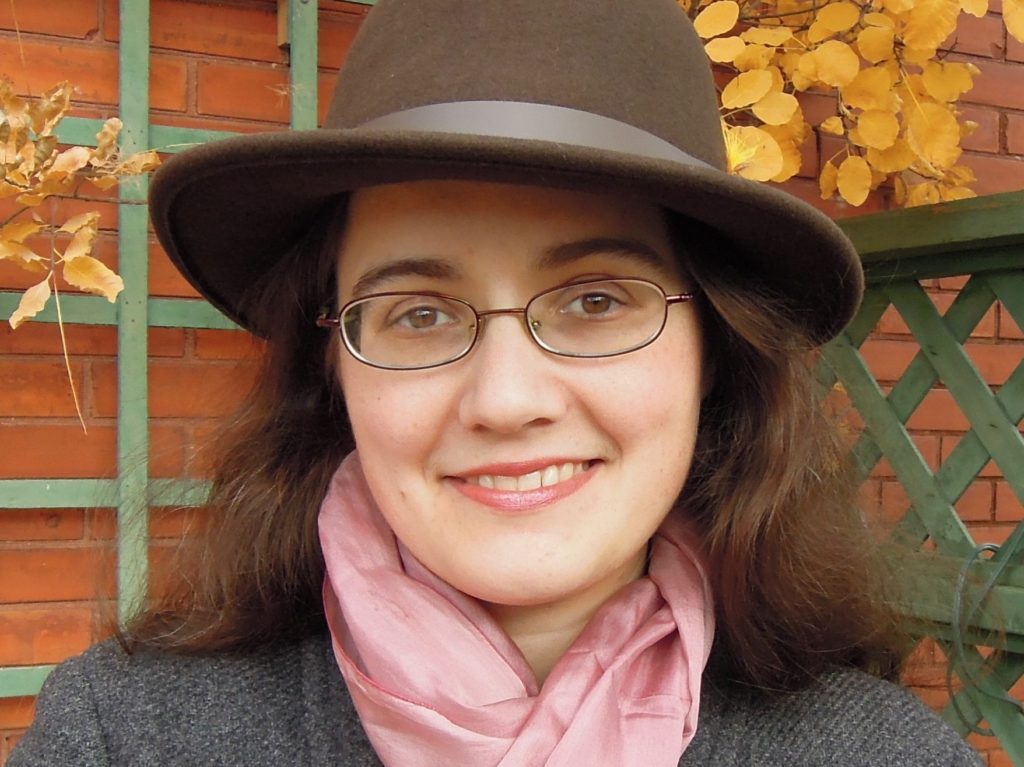
Elizabeth Clare
Assistant Professor, Biology, York University
My research group works to measure biodiversity at all levels from molecular evolution to ecosystem function and food web structure. We develop and employ novel genomic techniques to identify species and the connections between trophic levels. We have reconstructed food webs in both tropical and temperate systems to investigate ecosystem functioning and implications for conservation. We work with frugivores, insectivores and pollinators in both temperate and tropical environments in many countries including Canada, the US, Jamaica, Costa Rica, Belize, Malaysia and the UK.
Dr. Clare is co-lead for BIOSCAN Canada, a research program that is harnessing new technologies to make DNA barcoding faster and less expensive.
Jason Gibbs
Assistant Professor, University of Manitoba
Website: https://umanitoba.ca/faculties/afs/dept/entomology/personnel/Gibbs.html

My lab specializes in molecular biodiversity research, spanning diverse environments and species. We are developing DNA-based methods that are poised to revolutionize biotic surveys and inventories to make them more comprehensive, standardized and scalable. We collaborate closely with a variety of partners, including various ecological consulting firms and the primary industries they represent, government agencies and non-profit organizations. Applications of DNA-based biosurveillance in our lab have targeted invasive alien species, species-at-risk and other valued ecosystem component species to support evidence-based decision making in relation to conservation and restoration ecology.
Brock Harpur
Assistant Professor, Entomology, Purdue University
Social species are among the most successful on the planet. Honey bees have colonized almost every continent, a range that results from both natural and artificial expansions. My research program takes a bottom-up approach to understand how eusocial lineages evolve and the mechanisms through which adaptations occur. Ultimately, I strive to bridge the gaps in our understanding of genomics, the evolution of eusocial species, and the adaptive value of their behaviours.
Website: https://beemolevo.com/
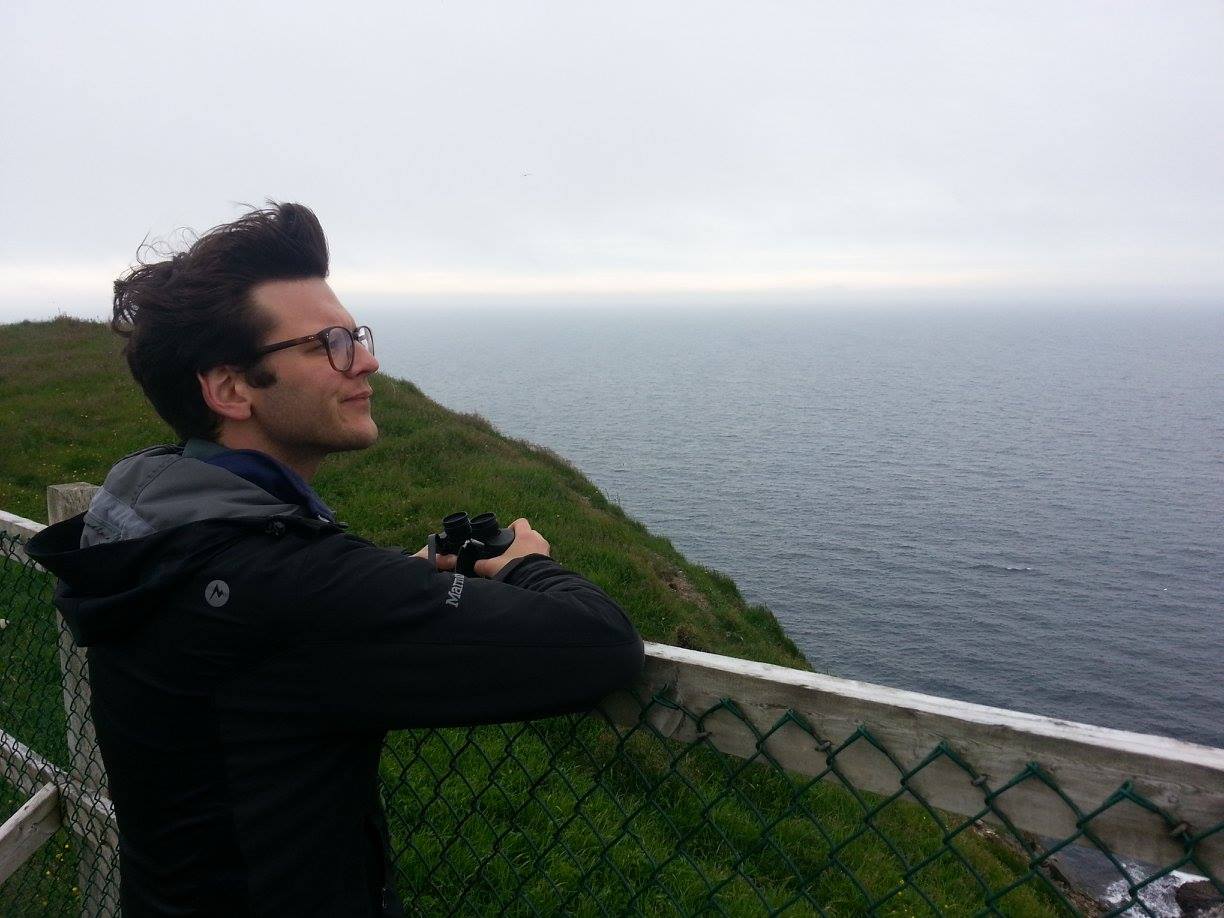
Clement Kent
Adjunct Professor, Department of Biology, York University
Website: https://biology.gradstudies.yorku.ca/faculty/clement-kent/
In genomics I work on analysis of whole-genome evolutionary trends. The explosion of published genomes now allows us to address many open questions in genome evolution. One area of particular interest is differences between species in nucleotide and amino acids usage in coding regions. I am interested in the parallel question of how to understand broad changes between species in neural genes, and then how to separate these broad changes from evolutionary pressures on individual genes. I work in collaboration with both researchers and with non-profits and community groups to understand how to improve urban environments for pollinators. This work ranges from helping to establish pollinator gardens and pollinator corridors in cities, to measuring the impact of these floral changes on pollinator communities, to collaborating with advocacy groups and urban governments to improve policy in ways that benefit native plants, pollinators, and people.
My lab is interested in plant and pollinator interactions, community ecology and biodiversity in urban landscapes and other human-impacted environments in order to better understand and support ecosystem functioning and biological conservation in the planning and design of cities. Our goal is to link community-level conservation and ecosystem service delivery to urban planning and design. We believe that biodiversity can inform good design, and in turn, good design can support biodiversity.
Scott MacIvor
Assistant Professor, Department of Biological Sciences, University of Toronto Scarborough
Website: http://www.macivorlab.ca/
Roderick MacRae
Associate Professor, Faculty of Environmental and Urban Change, York University
Website: https://euc.yorku.ca/faculty-profile/macrae-roderick-j/
I am a plant community ecologist focused on quantifying long-term changes in plant communities on human-dominated landscapes and the conservation of plant species at risk. I am interested in the response of plants to landscape fragmentation, modelling suitable habitat, and plant translocation for conservation purposes. The pollinators of many of Canada's rarest plant species are unknown or understudied, and I look forward to collaborating with BEEc colleagues to tackle this knowledge gap.
Jenny McCune
Assistant Professor, Biological Sciences & Graduate Studies, University of Lethbridge
Website: http://jlmccune.weebly.com/
Eryn McFarlane
Assistant Professor, Department of Biology, York University
My lab tries to understand what happens when populations or species that were previously diverged come back into contact and start to hybridize with each other. Using genomics from wild organisms (including birds, mice, butterflies, fish, deer, grass and now collaborating with folks in BEEc to work on bees), we ask how the environment affects rates of hybridization between species, and whether the environment affects different parts of the genome differently. We use statistical modelling to ask how much of the variation could be due to natural selection as compared to other processes such as genetic drift. Finally, we try to predict what could happen in populations or systems that we haven’t studied yet, to understand what might happen in a rapidly changing world.
Website: https://erynmcfarlane.github.io/

Lisa Myers
Assistant Professor, Faculty of Environmental and Urban Change, York University
Tier 2 York Research Chair in Indigenous Art and Curatorial Practice
Website: https://lisarosemyers.com/home.htm
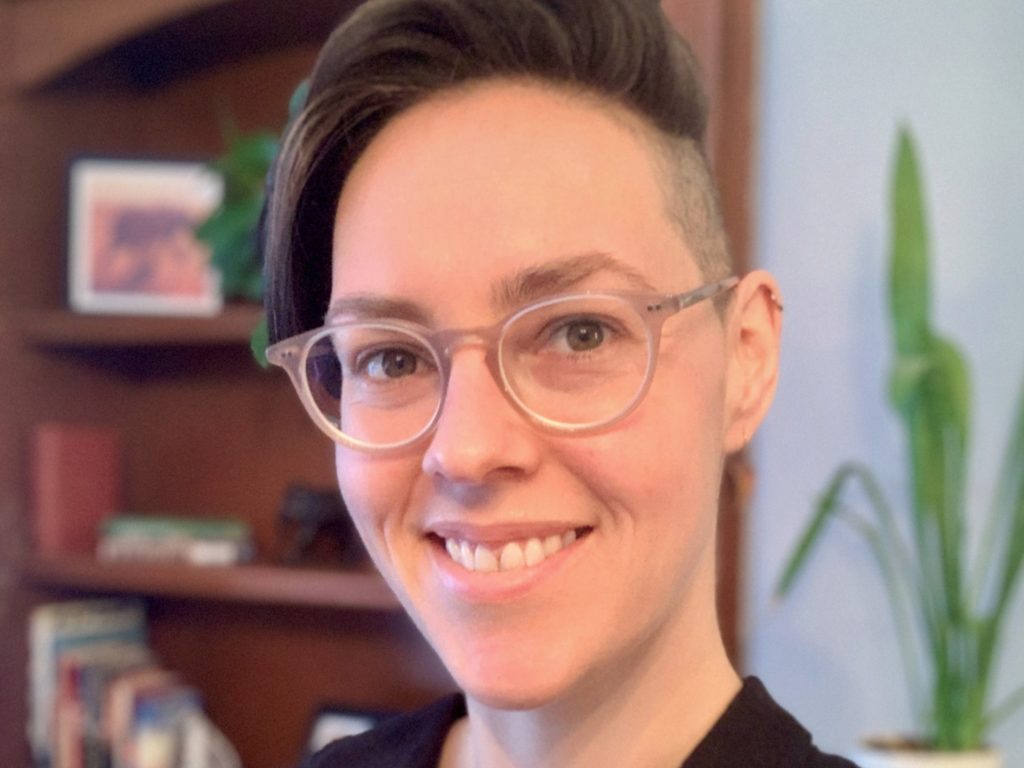
Website: https://sarahrotz.com/
Sarah Rotz
Assistant Professor, Faculty of Environmental and Urban Change, York University
As a geographer and political ecologist, my work is grounded in themes of environmental justice, with a focus on land and food systems. Much of my research aims to situate political economic processes – such as agri-food industrialization, financialization, and policy – within a lens of settler colonial patriarchy and racial capitalism. I also explore the consequences of these processes for sovereignty, justice and resistance movements more broadly. My work has focused on topics ranging from the political economy and ecology of farmland tenure and critical perspectives of big data in agriculture, to the ways that settler colonial logics and gendered narratives uphold extractive practices and relationships on the land. My research is often interdisciplinary and collaborative in nature, and I have a keen interest in the ethics, politics and process of research itself.
I am a mathematical modeller. I use models to study the ecology and evolution of infectious diseases in livestock and wildlife populations. One area of interest is in how modern apicultural practices can impact local disease burden in managed and wild bees.
Carly Rozins
Assistant Professor, Faculty of Science, York University
Website: https://carlyrozins.wordpress.com/
BEEc's Research Associates are post-doctoral fellows, visiting scholars, research assistants, or other non-faculty researchers who are engaged in research in a relevant field. Their expertise and involvement in the research and intellectual life of BEEc, and participation during workshops and conferences support the future of BEEc. These individuals are in addition to our Executive Committee members.
Sandara Brasil
Postdoctoral Fellow, Rehan Lab, York University
Katherine Chau
Postdoctoral Fellow, Rehan Lab, York University
Research focus: wild bee conservation genomics
Brandi Zenchyzen
Postdoctoral Fellow, Fitch Lab, York University
My current research investigates how pollinators and herbivores interact with different chemotypes of the bee-pollinated species, Monarda fistulosa (wild bergamot). Each chemotype is characterized by a distinct dominant monoterpene. Through field experiments, I aim to uncover whether these chemical differences influence insect interactions—a step toward linking plant chemistry with pollinator and herbivore behaviour.
Ida Conflitti
Former BeeCSI Project Manager, Biology Department, York University
Website: http://www.aboutida.ca/
Sarah French
Postdoctoral Researcher, York University
I am an ecologist working with Dr. Zayed and the BeeCSI team to assess how hive-scale and landscape-scale factors and stressors interact to impact honey bee health in agricultural regions across Canada. My research interests include behavioural, community, and landscape ecology, and how these fields can be applied to conservation efforts. My past research has focused on invertebrate responses to environmental heterogeneity, spanning aquatic, terrestrial, and linked aquatic-terrestrial systems.
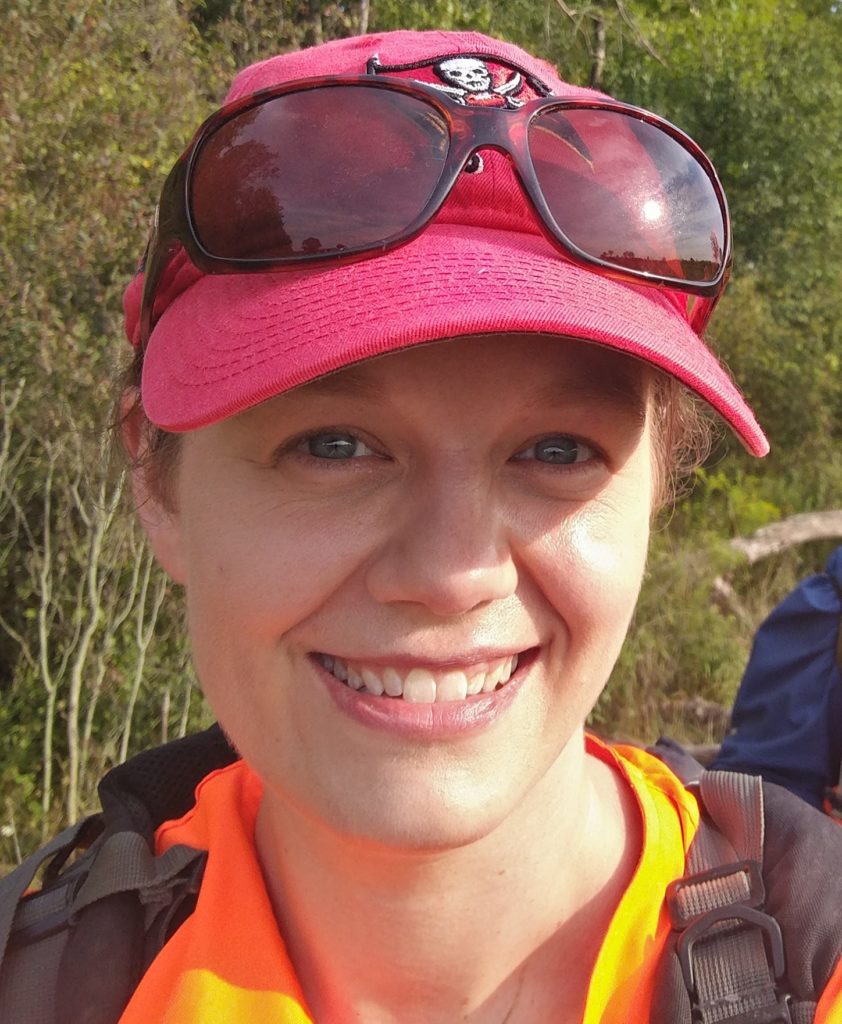
Kennedy Halvorson
Research Assistant, Finding Flowers Project, York University
Kennedy completed her research in the Native Pollinator Research Lab, focusing on pollination systems of Nicotiana rustica, a wild species of tobacco that has cultural and traditional significance to many Indigenous peoples across Canada.
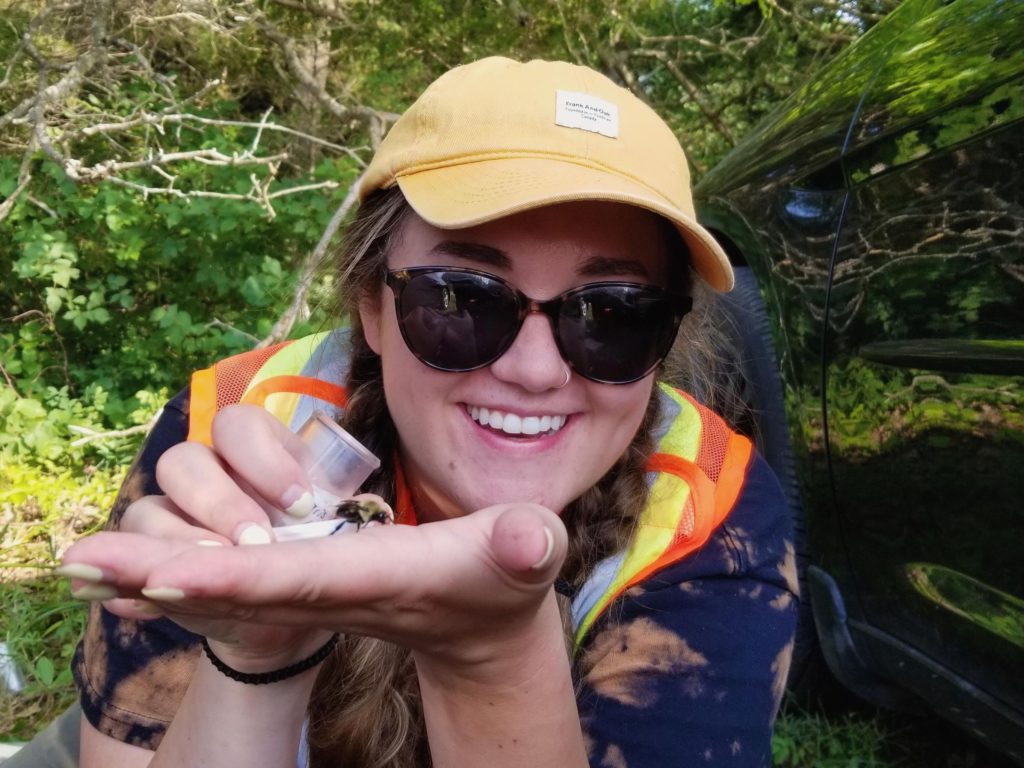
Victoria MacPhail
Former Coordinator, Centre for Bee Ecology, Evolution, and Conservation
Former Postdoctoral Researcher, Colla Lab, York University
Victoria has been conducting research related to pollinators since 2002. She took over the BEEc Coordinator position in August 2022. She most recently wrote a proposed clean stock certification program for Canadian commercial bumble bee stock. Her PhD (YorkU 2021) involved assessing the value of community (citizen) science programs for conservation. She helped to launch and is still an administrator with the BumbleBeeWatch.org program.
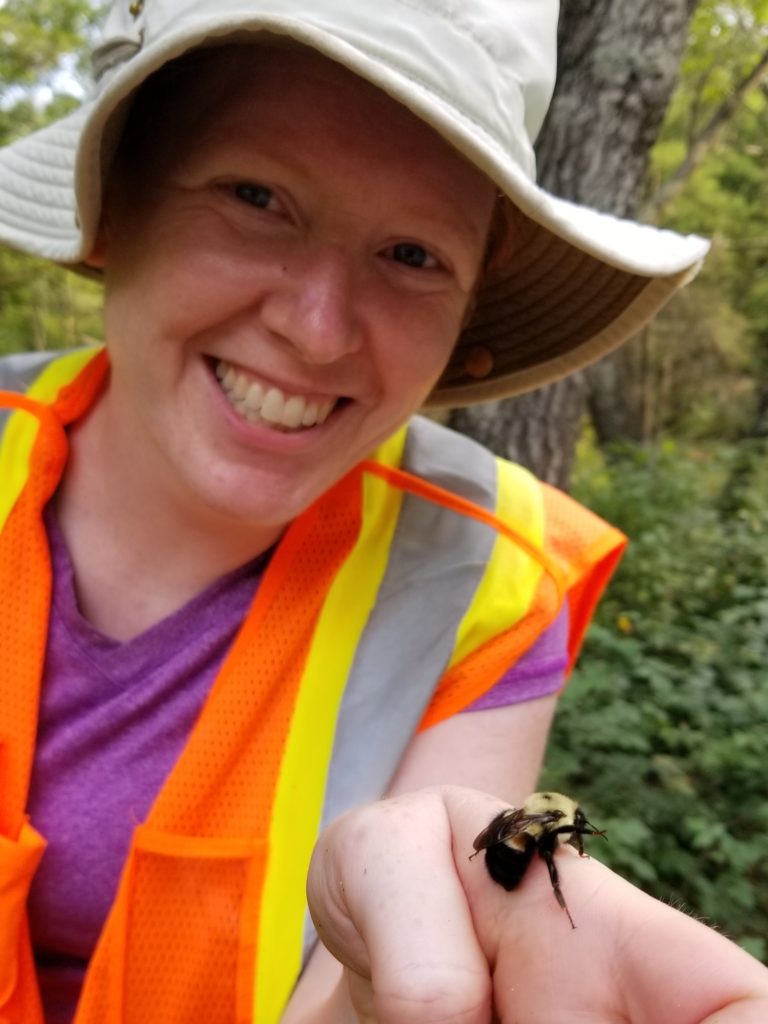
Michael Mikát
Postdoctoral Fellow, Rehan Lab, York University
Research focus: microbial ecology of wild bees across urbanization gradients
Rachel Nalepa
Post Doctoral Fellow, Colla Lab, York University
Rachel is social scientist researching the human dimension of pollinator conservation. Rachel’s research with the Colla lab was funded through a Mitacs fellowship with the Nature Conservancy of Canada and support from The W. Garfield Weston Foundation.
Laura Newburn
Coordinator, Centre for Bee Ecology, Evolution, and Conservation
Former BeeCSI Research Associate, Zayed Lab, York University.
After completing my PhD In 2021, I worked as a researcher and RNA subject matter expert on the BeeCSI project in the Zayed lab. My molecular biology background allowed me to explore any facets of this project including transcriptomics and pollen metagenomics. My research aimed to enhance our comprehension of pollinator ecology while investigating how interactive patterns adapt in response to changes.
Thomas Onuferko
Postdoctoral Fellow, Packer Lab, York University
Mateus Pepinelli
Former Lab Manager, Clare Lab, York University
Former Lab Manager, Zayed Lab, York University
Dana Prieto
Research Assistant, Finding Flowers Project, York University - on leave
Trevor Sless
Postdoctoral Fellow, Rehan lab, York University
Mathilde Tissier
Liber Ero Fellow, Colla Lab, York Univeristy & Bishop's University
I am a researcher interested in the effects of nutrition on the performance of terrestrial animals. I obtained my PhD in ecology and biodiversity conservation in agricultural landscapes from the University of Strasbourg (France) in 2017, after completing a BSc and MsC in exchange between France, Quebec and British Columbia. As a Liber Ero fellow, I am now working on bumblebee nutritional ecophysiology and conservation in collaboration with ENGOs, beekeepers and agricultural producers in QC and ON.
Nadia Tsvetkov
Postdoctoral Fellow, Zayed lab, York University
Sydney Wizenberg
Postdoctoral Fellow, Zayed lab, York University
I am a plant molecular biologist completing a post-doctoral fellowship in Prof. Amro Zayed's lab, where we are using pollen metagenomics to study foraging behaviour in managed honey bees. My work aims to improve our understanding of pollinator ecology and explore how patterns of interactivity respond to global change.
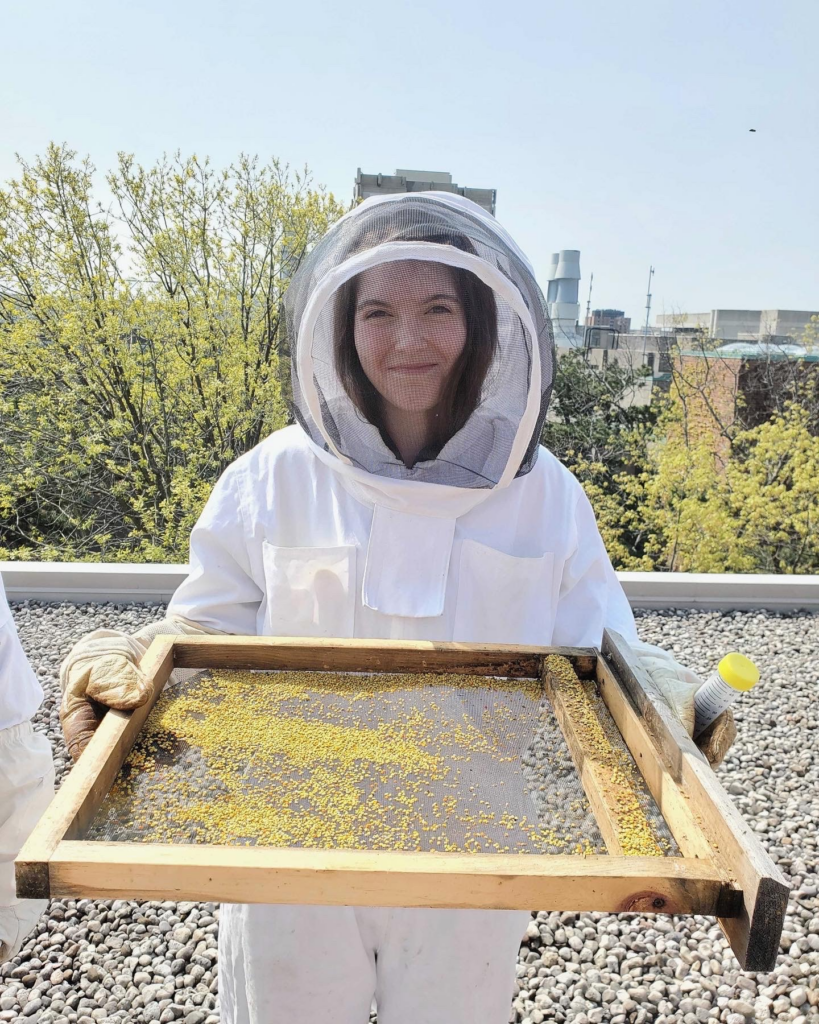
Jessica Vickruck
Research Scientist, Agriculture and Agri-Food Canada
Website: https://profils-profiles.science.gc.ca/en/profile/dr-jess-vickruck
I am an ecologist and evolutionary biologist who is broadly interested in beneficial insect behavior, community ecology and conservation. Sometimes this means watching bees in observation nests, sometimes it means using molecular markers to understand population structure, and sometimes it means driving all over to see what insect species we find in different landscapes. While I have primarily worked with wild bees, recently the lab has started to include other beneficial insects such as carabid beetles and even springtails (not technically an insect, I know!). Since 2019, I have been located in Fredericton, New Brunswick, where I am a research scientist for Agriculture and Agri-Food Canada.
BEEc's Student Associates are undergraduate or graduate students who are supervised or co-supervised by a BEEc Faculty Associate. Their contribution to research and BEEc activities by attending, participating in and/or supporting the organization of workshops, conferences and other events, drives BEEc's ability to create a hub of bee research.
Patrick Arteaga, PhD Candidate, Colla Lab
- Research focus: bees, ecomusicology, & policy
Anthony Ayers, MSc Candidate, Rehan Lab
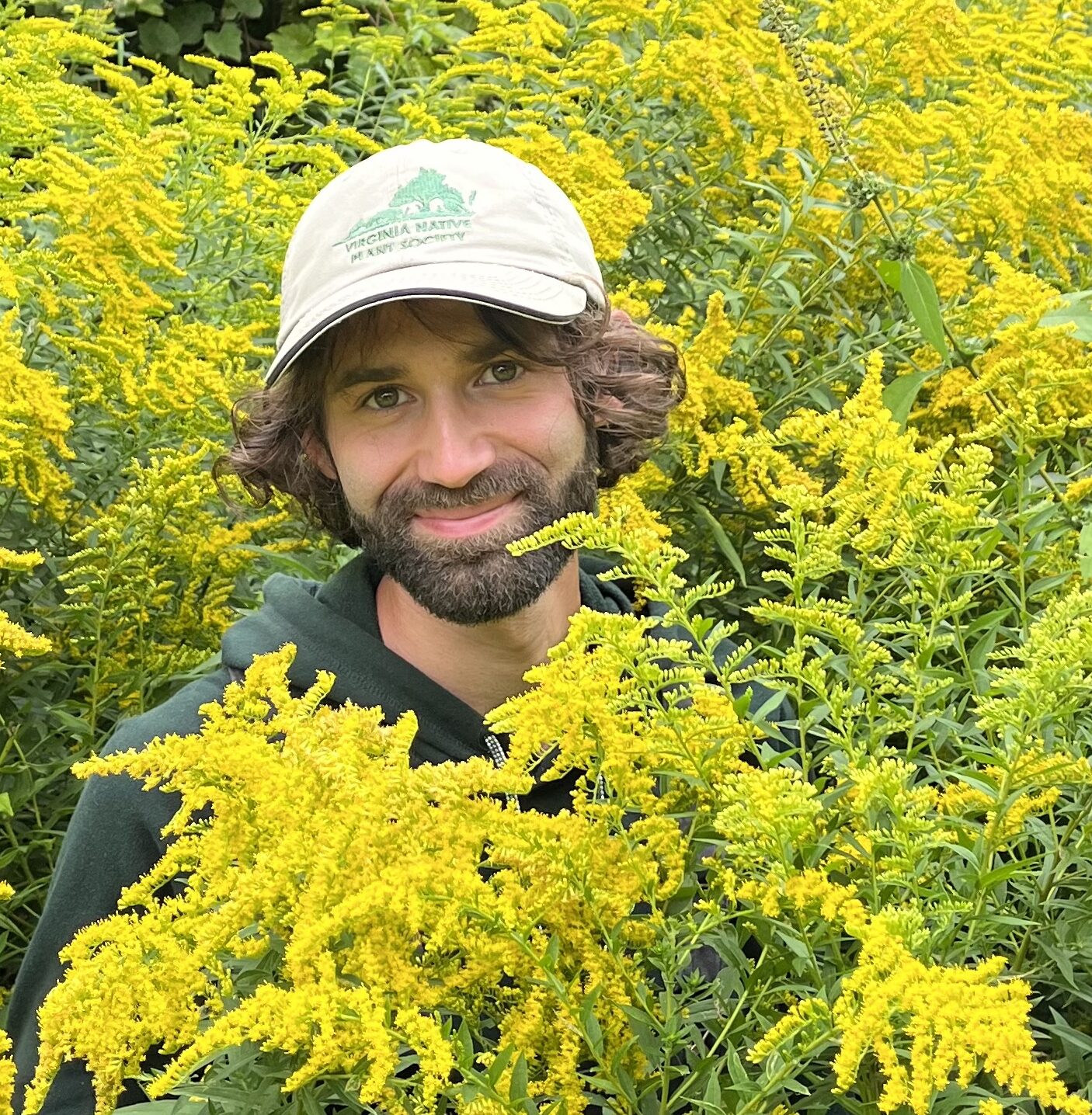
My research encompasses the urban ecology of Toronto's wild bees and their plant interactions at both landscape and local scales. While my MSc thesis examined how bee communities respond across the urban landscape (along an urbanization gradient), my dissertation focuses on smaller, garden-scale characteristics (such as garden size, floral traits, management) and how they may influence bee diversity and their plant interactions. With this work, I have been able to record thousands of interactions between bees and plants and am hoping that such a dataset can be used to provide reliable planting recommendations for bees in urban green spaces. I am also interested in methods of engaging communities, through field work and surveys, to boost involvement in the conservation of city biodiversity broadly.
Katie Dogantzis, PhD Candidate, Zayed Lab
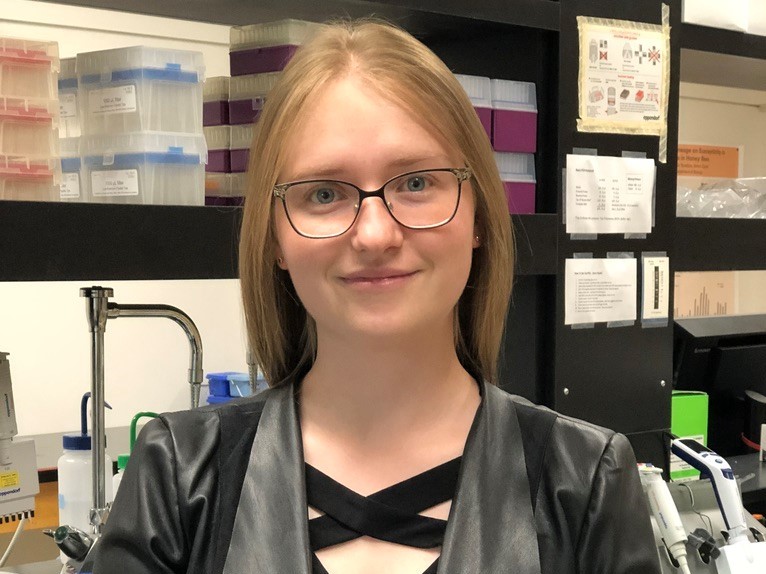
Research focus: adaptive radiation of the European Honey bee (Apis mellifera)
Briann Dorin, PhD candidate, Colla Lab
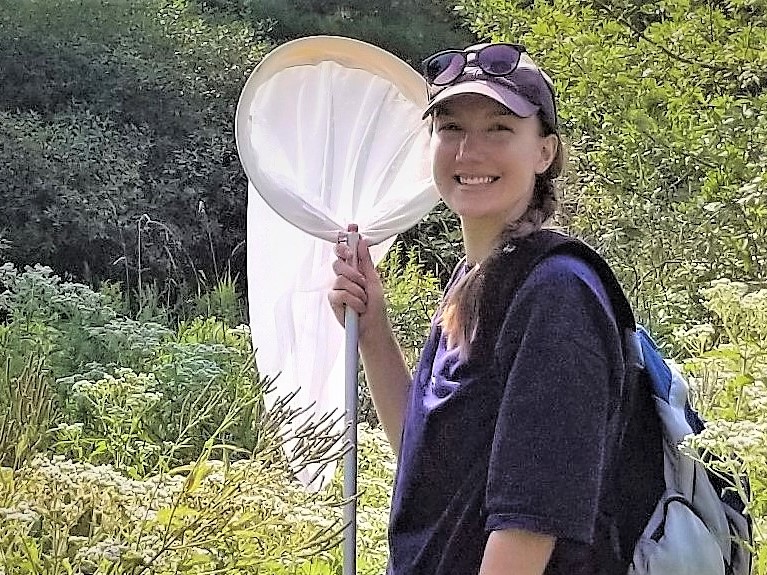
I am interested in interdisciplinary approaches to addressing wildlife conservation research questions in agricultural landscapes. My research looks at the impact of landscape (surrounding land-uses) and local (vineyard management) variables on native bee communities within vineyard agroecosystems. This research also aims to understand grape grower motivations, concerns, and needs within the adoption of pollinator-friendly vineyard management practices. Through collaborating with growers, I hope to determine agricultural practices, policies, and initiatives that best support our native pollinators in Canadian vineyards.
Hadil Elsayed, PhD Candidate, Colla Lab

Research focus: the impact of managed honey bees on wild bees in urban landscapes
Shelby Gibson, PhD Candidate, Colla Lab
- Research focus: understanding how sustainability policies and programs can influence the ability to conserve biodiversity in a particular landscape
Jesse Huisken, PhD Candidate, Rehan Lab
- Research focus: plasticity in foraging behaviour in the small carpenter bee (Ceratina calcarata) using experimental manipulation of observation colonies combined with transcriptomics
Aidan Jamieson, PhD Candidate, Zayed Lab
- Research focus: Molecular genetics of the western honey bee (Apis mellifera) detoxification systems
Taylor Kerekes, MSc candidate, Colla Lab
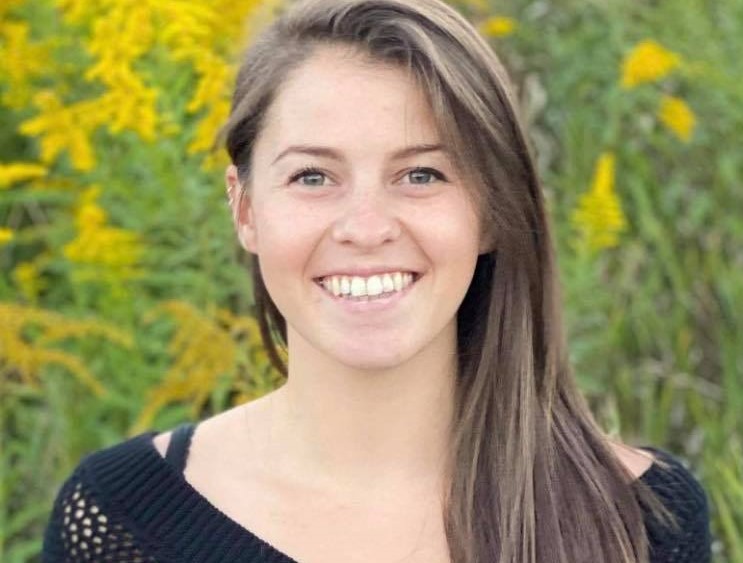
My research looks at possible competition between wild bees and honeybees in a shared urban setting by identifying pollen collected from the bees. This pollen will then give information on if there is resource overlap and can also give insight into which flowers are favoured by these communities. I will also be looking at the change in floral use, abundance and diversity of the bumblebee community in southern Ontario by comparing current data to previous studies.
Kat Lunn, PhD Candidate, Clare Lab
Alessia Mole, MES Candidate, Colla Lab
- I will be supervised by Dr. Sheila Colla during my Masters project. I will be looking at pollinator plants in northern Italy and conducting interviews with community members on the protection mechanisms around traditional medicinal plants.
Phuong (Cindy) Nguyen, PhD Candidate, Rehan Lab
- Research focus: characterizing wild bee microbiomes and their role in determining social behaviour and bee health
Caroline Ritchie, MSc Candidate, Zayed Lab
Nora Romero, PhD candidate, Packer Lab
- My research focuses on a taxonomic revision, systematics and biogeography of the Genus Liphanthus (Hymenoptera: Andrenidae). I will be using morphology in combination with Ultra Conserved Elements (UCEs) DNA sequences to provide insights on the diversification of the genus and distribution of species based on historical geological events.
Dova Suttner, PhD Candidate, Zayed Lab
Aishwarya Subramanian, MSc Candidate, Zayed Lab
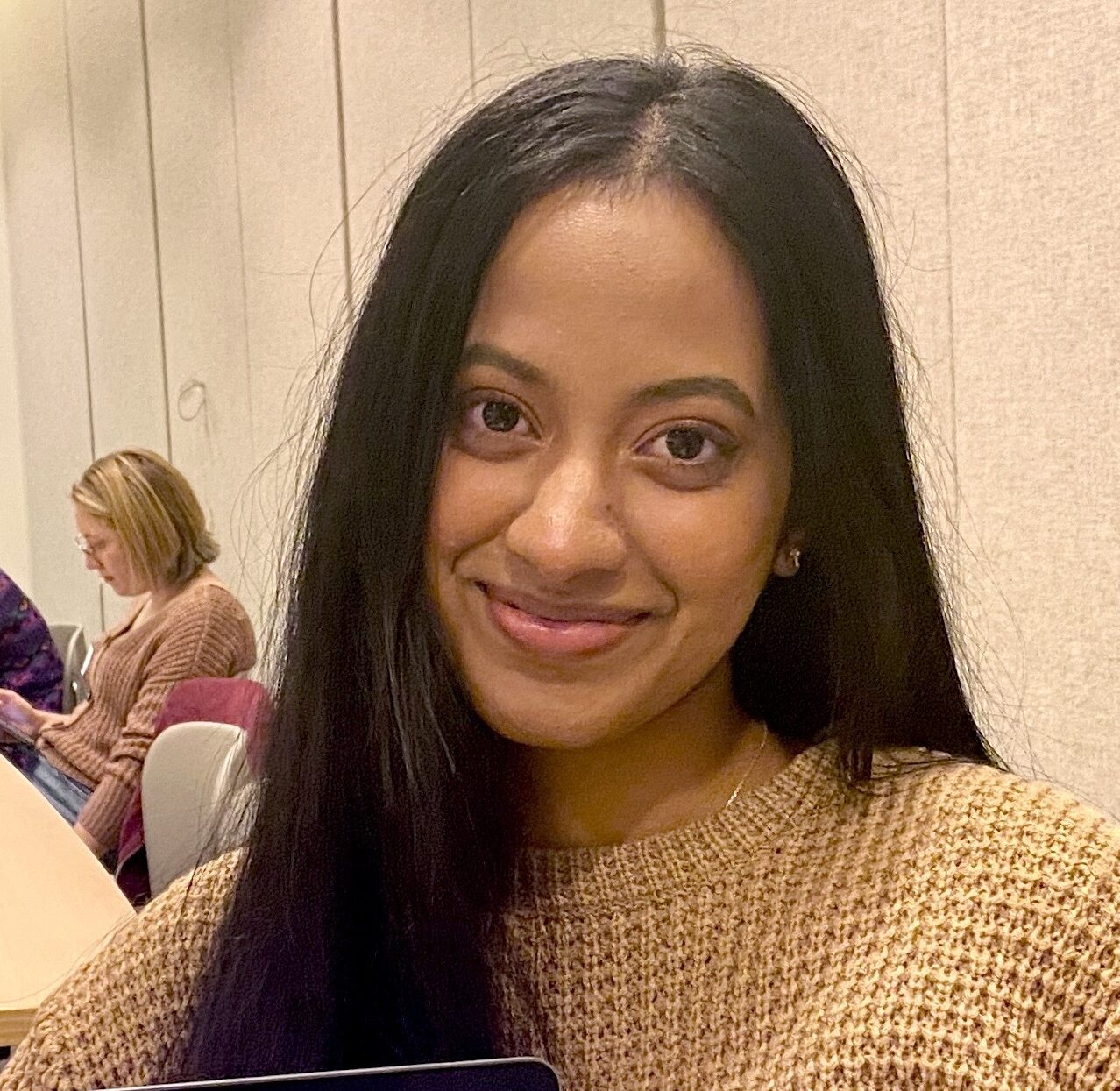
Research focus: To estimate broad-sense heritability of the gut microbiome in western honeybees (Apis mellifera)
Tanushree Tiwari, PhD Candidate, Zayed Lab
Taeyoon You, MSc Candidate, Zayed Lab
- Current research topics: Identification of single nucleotide polymorphisms in Apis melifera associated with expression levels of protein levels. Bioinformatics and statistical methods are used to find correlative genetic locations using dataset gathered from apiaries across Canada. We hope that the result will improve our understanding of genetic regulators of protein expression in honey bees, which would help pave the way to better control in bee breeding and care.
The BEEc Industry Associate category recognizes the importance of the community outside of academia in supporting the mandate of BEEc. Industry Associates may be affiliated with a research project, mentor students, host graduate research, or make other valuable contributions towards the success of BEEc and are subject to approval by the Executive Committee.
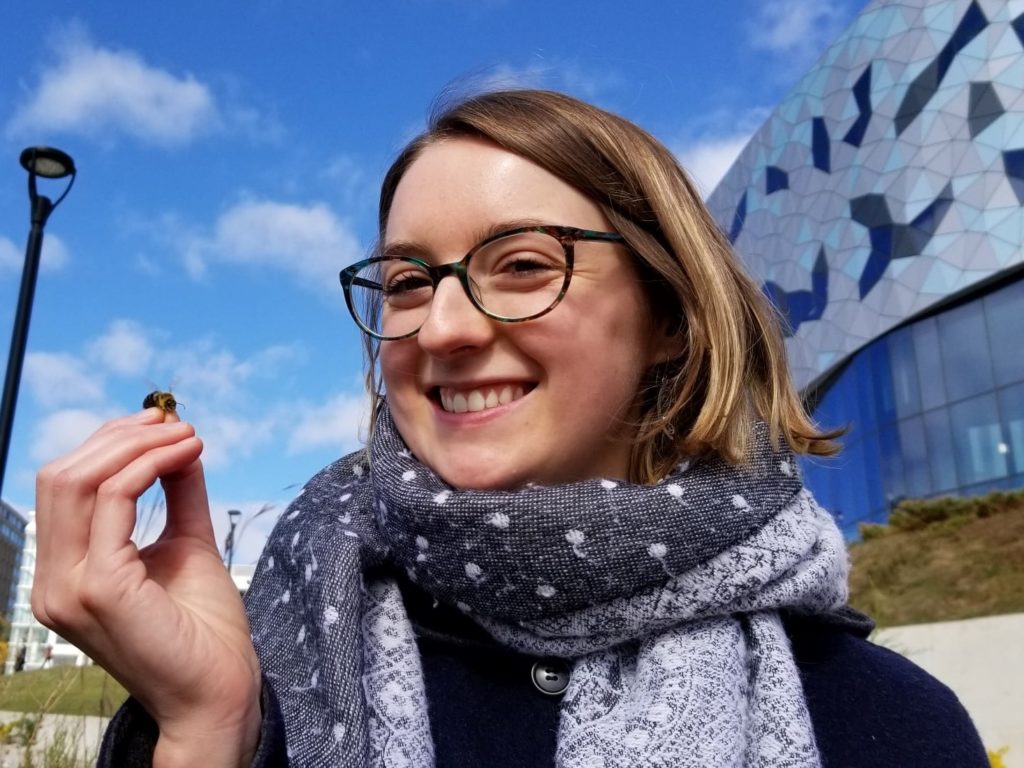
Sarah MacKell
Lead Biologist, Native Pollinator Initiative, Wildlife Preservation Canada
- Wildlife Preservation Canada (WPC) is dedicated to saving species at-risk by using multi-faceted approaches, including conservation breeding, population surveying, and community outreach. The Native Pollinator Initiative is mainly focused on conserving at-risk bumble bees, but they also have projects working with multiple butterflies (i.e. Taylor’s Checkerspot, Karner Blue and Mottled Duskywing).
- Sarah's main role at WPC is leading conservation breeding of at-risk bumble bees, which is related to multiple research areas being investigated at BEEc, such as pests and pathogens and monitoring and identifying source populations and suitable habitat for at-risk bees.
- Sarah collaborates with BEEc on priority research projects to conserve pollinators, especially bumble bees. WPC often co-supervises graduate student projects with BEEc researchers.
- Sarah's graduate research was supervised by Dr. Sheila Colla and investigated whether urban honey bee hives negatively impact wild bees.

